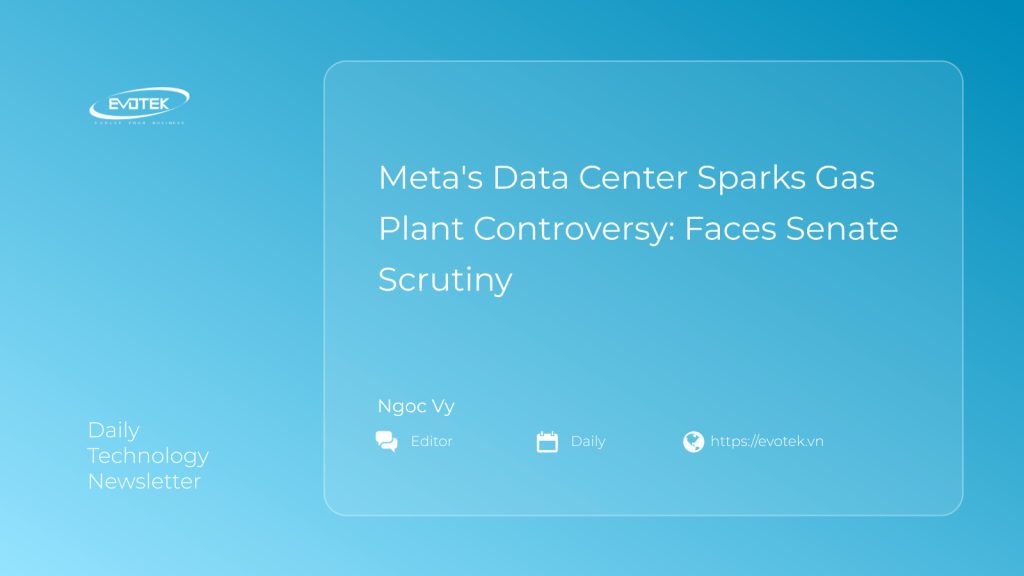Meta is under fire as Senator Sheldon Whitehouse launches an investigation into the environmental impact of its new AI data center in Louisiana. The controversy stems from plans to power the massive facility with natural gas, a move critics say undermines Meta’s climate pledges.
The proposed data center, a $10 billion investment spanning 4 million square feet, would be Meta’s largest to date. However, energy provider Entergy intends to construct three new gas-fired power plants to meet its substantial electricity demands, totaling 2,260 megawatts.
Senator Whitehouse expressed concern, stating that powering the data center with gas “flies in the face of Meta’s climate commitments.” In a letter to CEO Mark Zuckerberg, he demanded details about the data center’s energy consumption and projected greenhouse gas emissions.
Meta pledged in 2020 to achieve net-zero emissions across its operations by 2030. Yet, its carbon footprint has grown as it invests heavily in AI development. The company aims to offset its energy use by purchasing renewable energy credits, a strategy increasingly criticized for failing to address local pollution.
Advocates like the Alliance for Affordable Energy are pushing for greater transparency regarding the data center’s potential impact. They’ve requested Meta be included in regulatory proceedings concerning the gas plant approvals.
Meta defends its position, claiming it will continue to support renewable energy projects, including a 1,500-megawatt solar and battery initiative in Louisiana. They also plan to fund carbon capture technology at one of the power plants.
However, Senator Whitehouse seeks specifics on the funding and carbon capture potential, given the technology’s high cost and ties to enhanced oil recovery.
Meta stated they will respond to the Senator’s inquiries and believe “a diverse set of energy solutions are necessary to power our AI ambitions.”
Entergy maintains that gas is the most cost-effective option for providing the data center’s continuous power supply. They aim for 50% carbon pollution-free generation by 2030.
This controversy highlights the growing tension between the tech industry’s AI ambitions and climate responsibility, particularly regarding the energy-intensive demands of data centers. The outcome of the Louisiana Public Service Commission’s decision and Meta’s response to the Senate probe will be closely watched by environmental advocates and the tech world alike.
Keywords: Meta, data center, AI, climate change, gas plants, Sheldon Whitehouse, Louisiana, Entergy, renewable energy, carbon emissions

 日本語
日本語 한국어
한국어 Tiếng Việt
Tiếng Việt 简体中文
简体中文